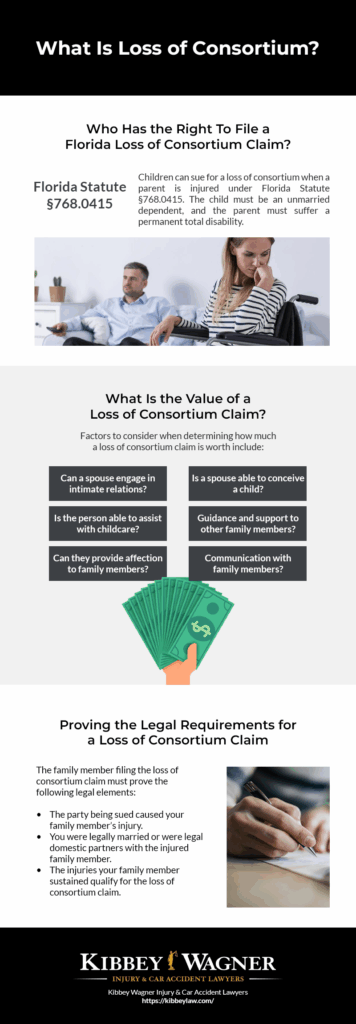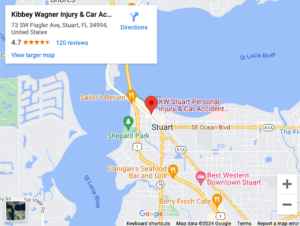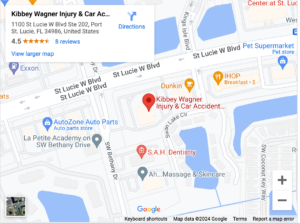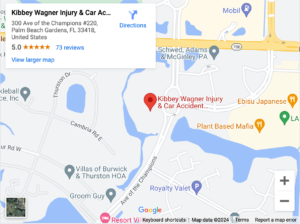
You could be entitled to compensation for damages after an accident or personal injury. An accident victim can demand reimbursement for their expenses (economic damages). They can also seek compensation for their pain and suffering (non-economic damages).
A personal injury can also impact a victim’s family. Spouses and children may experience a loss of consortium because their loved one sustained an injury. In some cases, the family members could be entitled to compensation for their loss of consortium.
Defining Loss of Consortium in Florida Personal Injury Cases

A loss of consortium definition is the loss of family relations because a family member sustains an injury. The injured family member can sue for damages they sustain. Non-injured family members might sue for loss of consortium.
The Florida Supreme Court defined consortium in the case of Gates v. Foley, 247 So. 2d 40. It is the companionship and fellowship between spouses. Therefore, a claim for loss of consortium seeks compensation for depriving a non-injured spouse of the benefits and rights of a relationship with the injured spouse.
Consortium can include the loss of:
- Fellowship
- Assistance
- Intimate relations
- Comfort
- Affection
- Moral support
- Protection
- Solace
- Caring for children and other family members
- Performing household chores
A loss of consortium claim is separate from a personal injury claim. A family member files for loss of consortium based on the personal injury claim. Any money paid for the damages is paid to the family members.
Who Has the Right To File a Florida Loss of Consortium Claim?
Generally, surviving spouses and domestic parties can file a loss of consortium claim in Florida. Children can sue for a loss of consortium when a parent is injured under Florida Statute §768.0415. The child must be an unmarried dependent, and the parent must suffer a permanent total disability.
A parent of a minor child might have a loss of consortium claim if the child sustains an injury. However, those cases are not as common. The best way to find out if you or your family member could find a loss of consortium claim is to discuss your case with our Stuart personal injury lawyers.
What Is the Value of a Loss of Consortium Claim?
Loss of consortium claims are non-economic damages. There is no standard formula used to calculate the value of loss of consortium claims in Florida. Instead, you must consider the facts and circumstances of the case.
Factors to consider when determining how much a loss of consortium claim is worth include, but are not limited to:
- Can a spouse engage in intimate relations?
- Is a spouse able to conceive a child?
- Do a person’s physical injuries prevent them from caring for family members?
- Is the person able to assist with household chores and childcare?
- Can the person provide affection, comfort, and assistance to other family members?
- Is the person able to provide beneficial guidance and support to other family members?
- Can the person communicate with family members and express their emotions?
The value of a loss of consortium claim is directly related to the severity of the injury’s impact on family relationships and physical abilities. For example, suppose a person sustains a catastrophic permanent disability that substantially impairs a family member’s ability to engage with the family emotionally and physically. The value of the loss of consortium claim should increase.
An insurance company might try to minimize and undervalue loss of consortium claims. Therefore, providing details that accurately portray the severity of the loss helps. Testimony from family members, friends, physicians, and medical experts can also help strengthen the claim.
Proving the Legal Requirements for a Loss of Consortium Claim
The family member filing the loss of consortium claim has the burden of proving their case. They must prove the following legal elements:
- The party being sued caused your family member’s injury;
- You were legally married or were legal domestic partners with the injured family member (children would need to prove they are dependents of the injured parent);
- The injuries your family member sustained qualify for the loss of consortium claim; and,
- You sustained the loss of consortium because the party being sued caused your loved one’s injury because of negligence or intentional torts.
Medical records are necessary to prove the type and severity of the injury. Additionally, medical specialists can explain how the injury prevents the victim from performing physical activities. For example, a spinal cord injury prevents a victim from engaging in sexual relations, caring for a child, or performing household chores.
An injury could cause cognitive or emotional impairments. Expert witnesses and medical records would be required to prove the injuries and how the injuries cause impairments that result in a loss of consortium.
Schedule a Free Consultation With a Stuart Personal Injury Lawyer
Our accident attorneys at Kibbey Wagner Injury & Car Accident Lawyers PLLC pursue all sources of compensation for your personal injury claim. Contact our law office online or call (772) 444-7000 to schedule a free case evaluation with a Stuart personal injury attorney to discuss how we can help you.
Loss Of Consortium Infographic





